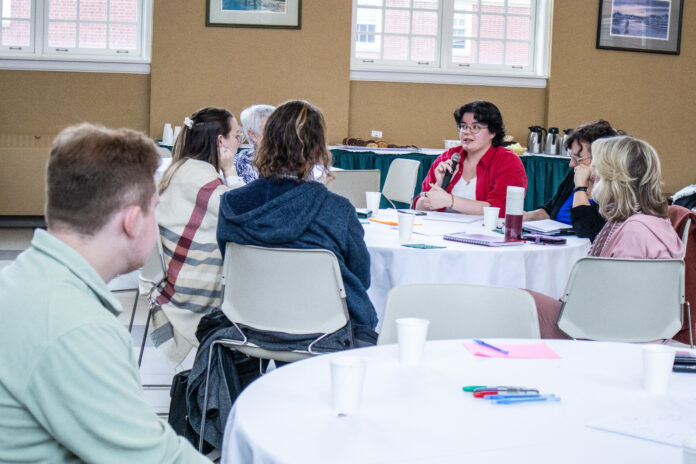

Haider Mehdi visited St. Thomas University on March 18 as the next speaker in the strategic planning series. Mehdi brought ideas about the relationship between the liberal arts and STEM fields.
Mehdi continued to tackle ideas about STU’s image and how to reinvent the liberal arts. He thinks that the way people think at STU has a place in STEM and AI.
“The ethical and moral guardrails that a liberal arts education gives to society today. Is not provided by an … AI or STEM students,” said Mehdi.
He mentioned the University of Pakistan and the implementation of mandatory liberal arts courses for STEM students, such as social thought, philosophical thought and formal reasoning.
Teaching these courses creates a “very different bunch of individuals” than any other AI, science or engineering program.
“These are, in my view, the people who have the critical reasoning skills that you guys teach. These guys have the moral and ethical guardrails that they will bring to a company and say, ‘I don’t think we should be doing this even though it is legal, it is unethical and it is immoral.’”
In a world of developing AI and future job loss to technology, Mehdi believes there will be a place for people who can think with a liberal arts lens.
How this applies to STU would be 10 courses proposed by Mehdi “where you marry up with the world of STEM.”
The opposite of the University of Pakistan, STU could have courses such as: liberal arts and AI; liberal arts and technology; or liberal arts and sciences.
“Stick to what you do but make it relevant for the students.”
If these courses were implemented, Mehdi said it would allow students to work for a for-profit STEM organization and know the environment generally and leverage their skills.
This will hopefully make liberal arts students more employable in the STEM field.
Ideas of ‘marrying’ the liberal arts and STEM came with mixed reviews from attendees. Mehdi was met with remarks about STU having an advertising or communications problem rather than a content problem.
International relations professor Shaun Narine commented at the beginning of the presentation saying, “we have an advertising problem, we don’t necessarily have a content problem. Now I want you to address that.”
Mehdi responded saying, “Every liberal arts school and university, which is not reinventing its content to align itself to this world, where STEM and AI dominate … is doomed.”
For Mehdi “critical thinking is essential” and that needs to be better communicated to employers.
